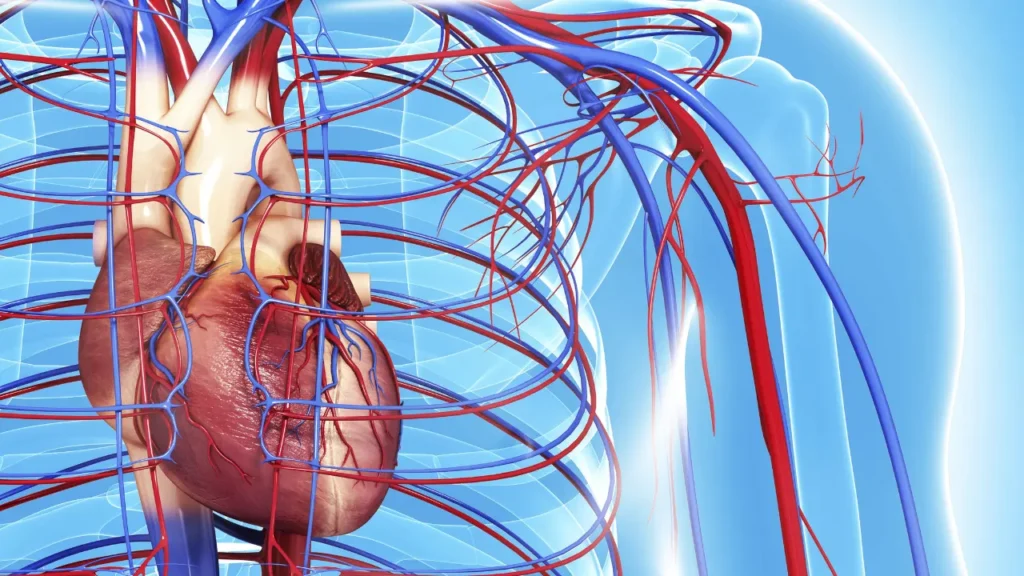Wine is an alcoholic beverage created from fermented grapes that has been enjoyed for thousands of years and is significant in many cultures. According to research, moderate wine drinking may have certain health advantages, mainly because wine has a special chemical makeup that includes polyphenols, flavonoids, and antioxidants. This article seeks to present a thorough examination of wine’s chemistry, as well as its health advantages, recommended dosage, negative effects, possible drug interactions, and responsible applications.
You May Also Like:
The Best Supplements for Brain Injury: 5 Top Brands Reviewed
The Best Supplements for Memory and Brain Fog: 5 Top Brands Reviewed
Wine: Benefits, Dosage, Side Effects, Drug Interactions, And Other Important Information is an original (NootropicsPlanet) article.
Nature of Wine
The fermentation of grape juice produces wine, an alcoholic beverage. The juice from crushed grapes is extracted, mixed with yeast, and left to ferment. During fermentation, yeast consumes the sugar in grape juice, turning it into ethanol and carbon dioxide. The grape variety, fermentation process, and aging methods employed all influence the wine produced. Red, white, and rosé wines are the three main wine categories, with each having a distinct flavor, color, and chemical makeup.
Health Benefits of Wine
Because wine contains polyphenols, flavonoids, and antioxidants, moderate wine consumption has been linked to a number of health advantages. These advantages consist of:
Circulatory Health
Numerous studies have revealed that drinking wine in moderation may lower your risk of developing cardiovascular conditions like coronary heart disease and stroke. Wine polyphenols, especially resveratrol, have been demonstrated to enhance endothelial function, lessen oxidative stress, and lessen inflammation, all of which support improved cardiovascular health.
Effects of Antioxidants
Resveratrol and flavonoids, two powerful antioxidants found in wine, can aid the body fight free radicals. Free radicals are chemicals that have the potential to harm cells and have a role in the onset of many illnesses, such as cancer, heart disease, and neurological disorders. Antioxidants in wine may aid in preventing certain diseases by scavenging free radicals.
Cognitive Process
According to several research, moderate wine drinking may reduce the risk of dementia and cognitive impairment, including Alzheimer’s disease. Wine’s antioxidants and polyphenols may protect neurons from oxidative damage and inflammation, improving cognitive function.

Chemistry of Wine
Wine consists of water, ethanol, organic acids, and countless other substances, including polyphenols, flavonoids, and antioxidants. These bioactive chemicals, especially those in red wine, can be attributed to many of the possible health advantages of wine drinking.
Polyphenols
Plants, especially grapes, contain a class of naturally occurring substances called polyphenols. These polyphenols function as antioxidants, shielding the plant from environmental stressors and offering advantages to human health when consumed. Resveratrol, quercetin, catechins, and proanthocyanidins are important polyphenols found in wine.
Flavonoids
A subclass of polyphenols known as flavonoids is present in a wide range of fruits, vegetables, and plant-based beverages, such as wine. They possess anti-inflammatory, vasodilatory, and antioxidant effects. Anthocyanins give red wine its color and flavor, and flavonols, such as quercetin and kaempferol, are the principal flavonoids in wine.
Physiological Mechanism of Action
The physiological effects of wine on the body and brain are mostly due to bioactive substances such as polyphenols, flavonoids, and alcohol concentration. These molecules interact with many biological processes and systems, resulting in the potential health advantages and hazards of wine intake.
System of the Cardiovascular System
Wine polyphenols, particularly resveratrol, are thought to promote cardiovascular health by lowering oxidative stress, suppressing platelet aggregation, and increasing endothelial function. These effects may aid in preventing atherosclerosis, heart disease, and stroke.
Antioxidant Properties
Wine’s antioxidant properties are mainly attributable to its polyphenol content, which can assist the body in destroying free radicals. By lowering oxidative stress and cellular damage, wine’s antioxidants may contribute to a lower risk of chronic diseases such as cancer, heart disease, and neurological disorders.
The Effects of Alcohol on the Brain
The principal psychoactive component of wine, alcohol, affects the brain by interacting with numerous neurotransmitter systems. Alcohol is primarily a central nervous system depressant, increasing the impact of inhibitory neurotransmitters like gamma-aminobutyric acid (GABA) while decreasing the action of excitatory neurotransmitters like glutamate. This can result in feelings of relaxation, reduced inhibitions, and decreased cognitive performance. Furthermore, alcohol can affect the release of other neurotransmitters, such as dopamine and serotonin, which can contribute to feelings of pleasure and reward.
In conclusion, wine’s physiological effects on the body and brain can be traced to its distinct chemical composition, which includes polyphenols, flavonoids, and alcohol concentration. These chemicals interact with many biological processes and systems, potentially resulting in both health benefits and hazards connected with wine drinking. Understanding these systems can aid in the responsible intake of wine and maximize its potential benefits.

Optimal Dosage of Wine
The best amount of wine to drink for health advantages depends on a person’s age, sex, and general state of health. Moderate wine consumption is often regarded as:
- For men: up to two standard drinks per day
- For women: up to one standard drink per day
The usual serving size is five ounces (148 mL) of wine with a 12% alcohol concentration. It is crucial to remember that going overboard might undermine wine’s potential health benefits and raise your chance of developing health issues.
Side Effects of Wine
Several adverse effects and health risks can result from excessive wine consumption, including:
Health risks associated with alcohol
Alcohol use disorders, liver disease, cardiovascular disease, several malignancies, and other health issues are all linked to excessive alcohol usage. Heavy drinking over an extended period can have a harmful effect on mental health as well, increasing the risk of psychiatric illnesses like depression and anxiety.
Gaining Weight
Like other alcoholic beverages, wine has calories that, if consumed in excess, can lead to weight gain. Alcohol can also affect how the body metabolizes and stores energy, which contributes to weight gain and obesity.
Sleep disturbance
While moderate alcohol consumption may at first feel sedating, excessive wine consumption can interfere with the natural sleep cycle, resulting in restless nights and fatigue during the day.

Potential Substance Interactions with Wine
Like other alcoholic beverages, wine can interact with a variety of drugs and substances, possibly changing how effective they are or having unfavorable effects. Among the frequent interactions are:
Medications on Prescription
Numerous prescription drugs, including sedatives, antidepressants, anticoagulants, and pain relievers, can interact with wine. Alcohol can either increase or decrease the effects of these drugs, which could result in problems or reduced efficacy.
Over-the-Counter Drugs
Additionally, when combined with alcohol, wine, and over-the-counter medications like nonsteroidal anti-inflammatory drugs (NSAIDs), it can increase the risk of gastrointestinal bleeding. Alcohol can also interact with antihistamines, increasing drowsiness and impairing motor function.
Recreational Drugs
Combining wine with illegal narcotics or other recreational substances might have unknown consequences and raise the likelihood of mishaps, injuries, or other undesirable events.
Best Responsible Uses of Wine
It is crucial to drink wine sensibly if you want to optimize its potential health advantages while lowering its hazards. The suggestions that follow can promote appropriate and secure wine consumption:
Follow the Guidelines for Moderate Consumption
As previously noted, the conventional definition of moderate wine intake is up to two standard drinks for males and up to one standard drink for women daily. These recommendations can help ensure that wine consumption stays within acceptable ranges.
Do not binge drink.
For women, binge drinking is when they have four or more alcoholic beverages in less than two hours, whereas for men, it’s five or more. Several detrimental health effects, including alcohol poisoning, liver damage, and an elevated chance of accidents or injuries, can result from binge drinking.
Be Aware of Medications and Drugs
It is essential to be aware of any possible drug or substance interactions before eating wine. If you have questions regarding possible interactions or the safety of consuming wine while taking medication or other substances, speak with a healthcare provider.
Wine:
Conclusion
It’s important to emphasize that these potential health benefits are associated with moderate wine consumption. Additionally, individual factors such as age, overall diet, lifestyle, and health status can influence how wine consumption affects health. As with any dietary choice, it’s essential to consume wine in moderation and as part of a balanced lifestyle that includes a healthy diet, regular physical activity, and avoidance of smoking. If you have specific health concerns or conditions, it’s advisable to consult with a healthcare professional for personalized advice regarding alcohol consumption. While moderate wine consumption may offer certain health benefits, it’s essential to weigh these potential benefits against the risks and make informed decisions based on individual circumstances.

References:
- Wine and cardiovascular health: A comprehensive review. Retrieved from: https://www.ncbi.nlm.nih.gov/pmc/articles/PMC3023893/
- Wine polyphenols: potential agents in neuroprotection. Retrieved from: https://www.ncbi.nlm.nih.gov/pmc/articles/PMC3548046/
- Alcohol’s effects on the body. Retrieved from: https://www.niaaa.nih.gov/alcohols-effects-health/alcohols-effects-body
- Wine, alcohol and pills: an update. Retrieved from: https://pubmed.ncbi.nlm.nih.gov/22724653/
Important Note: The information contained in this article is for general informational purposes only, and should not be construed as health or medical advice, nor is it intended to diagnose, prevent, treat, or cure any disease or health condition. Before embarking on any diet, fitness regimen, or program of nutritional supplementation, it is advisable to consult your healthcare professional in order to determine its safety and probable efficacy in terms of your individual state of health.
Regarding Nutritional Supplements Or Other Non-Prescription Health Products: If any nutritional supplements or other non-prescription health products are mentioned in the foregoing article, any claims or statements made about them have not been evaluated by the U.S. Food and Drug Administration, and such nutritional supplements or other health products are not intended to diagnose, treat, cure, or prevent any disease.


